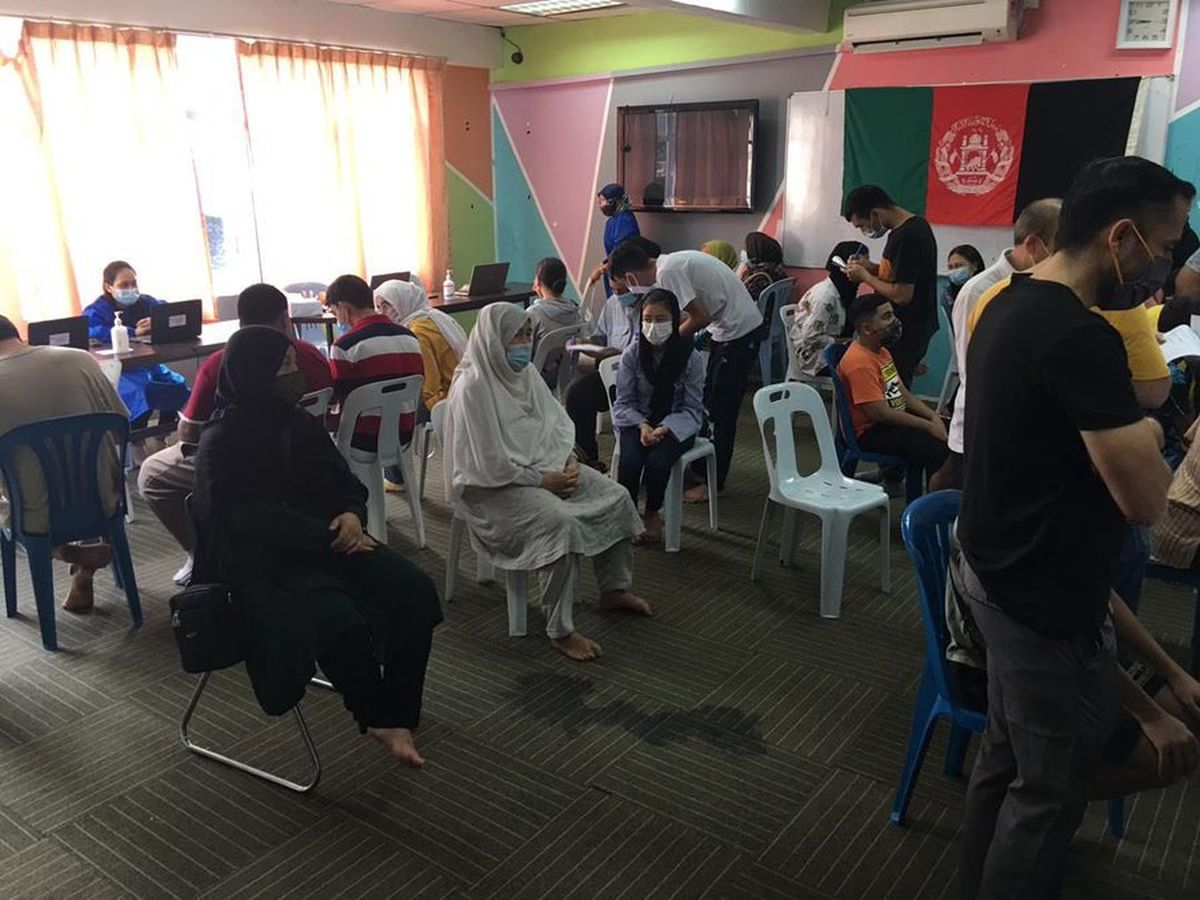KUALA LUMPUR, Sept 14 — A recent consumer insight study has revealed that over 40 per cent of all participants surveyed in seven Asia Pacific markets – Singapore, Thailand, Malaysia, Hong Kong, Taiwan, Indonesia, and the Philippines – believe that Covid-19 prescription treatments are as equally important as Covid-19 vaccines when fighting the virus, although awareness of such treatments in some markets is low.
The ongoing study on Covid-19 prescription therapeutics was conducted independently by market research company Ipsos in 18 markets, with about 34,038 people surveyed across Asia Pacific (APAC), Latin America (LATAM), and the Middle East, Russia and Africa (MERA) regions in July this year.
The APAC element of the study comprised 14,012 people (approximately 2,000 per market).
Of those surveyed in Singapore, Malaysia, Indonesia, Hong Kong, Taiwan, and the Philippines, under 40 per cent say they are “very aware” (6 or 7 on a 7-point scale, where 1 = not at all aware and 7 = very aware) of Covid-19 prescription therapeutics – even though for eligible patients in markets such as Singapore, Malaysia and Hong Kong, treatment options are widely available, including full government subsidies for Covid-19 prescription treatments.
And yet, patient knowledge in this area is found wanting. In Singapore, Hong Kong, and Taiwan, more than half of respondents (53 per cent to 60 per cent) say they are either unaware of where to get oral antiviral treatments free of charge or of what documentation is required to receive free oral antiviral treatment, or both.
Even for participants in these markets who say they are aware of at least one oral antiviral, more than half (51 per cent to 70 per cent) say they are unsure or don’t know which treatments are offered free of charge.
The study also shows that at least 70 per cent of the participants in APAC classified as high risk either do not believe they are, or are unsure if they are, at high risk of developing severe Covid-19.
Reasons For Treatment Hesitancy
On treatment hesitancy, the study offers rationales for participants not contacting a health care professional (HCP) after a confirmed or suspected Covid-19 diagnosis or exposure (based on a finite list of reasons provided to respondents).
The top reason given across the APAC markets was self-isolating to not spreading the virus — with 45 per cent in Indonesia, 37 per cent in the Philippines, and 36 per cent in Malaysia.
Another top reason reported by consumers for not contacting HCPs is that they were not experiencing symptoms or did not have a confirmed diagnosis.
In addition, when considering participants who were not prescribed or recommended a Covid-19 prescription treatment after having a confirmed or suspected Covid-19 diagnosis or exposure, the main reasons selected were that their HCP felt their symptoms were too mild or their HCP did not mention a treatment.
“In our fight against the coronavirus, a lot has been talked about vaccinations and yet little on the availability of treatment of Covid-19.
“Particularly for our high-risk patients, understanding the array of treatment options, including antivirals, can significantly limit disease progression to more severe illness and effectively reduce hospitalisation and death rates,” said Dr Leong Hoe Nam, infectious disease specialist at Mount Elizabeth Novena Hospital in Singapore.
“It’s crucial for consumers to remain informed and proactive about their health decisions. A sense of complacency could inadvertently put the patient at greater risk. Recognising risks early, accepting professional advice, and adopting recommended treatments are key,” he added.
Antivirals Top Recommended Treatment Therapy For Covid-19
In five of the APAC markets surveyed, high-risk respondents who were prescribed a Covid-19 prescription treatment after contacting an HCP (after having, or being exposed to Covid-19), antivirals rank as the most prescribed treatment class.
This is also the class of prescription therapies recommended for non-severe Covid-19 patients by the World Health Organization (WHO).
Notably, in Hong Kong and Indonesia, antivirals led other prescription treatment options for this high-risk group, with over half of participants stating they were prescribed antivirals, compared to a lower share prescribed other treatment classes (for example, antibiotics, steroids, and immune modulators).
This pattern points towards a recognition of the role that antivirals play in Covid-19 management, and in the treatment life cycle of a patient’s journey.
Dr Suresh Kumar Chidambaram, infectious disease consultant and head of Department of Medicine at Sungai Buloh Hospital, Malaysia, said: “Our fight against the coronavirus is not over yet, and prompt Covid-19 diagnosis is very important and potentially lifesaving for high-risk individuals.
“Understanding that patients already feel that prescription treatments are as vital as vaccinations, doctors can play a significant role in educating high-risk patients to adopt treatments that have been proven to be effective against new variants.”
Top information Sources For Covid-19 Treatments
When it comes to seeking information about Covid-19 prescription treatments, for participants who cited some level awareness of Covid-19 therapeutics (rating 3-7 on a 7-point scale), the top go-to information sources across the seven Asian markets are social media, online search engines or websites, national health authority guidelines and recommendations, the media (television, press, and radio), and family and friends.
Social media is the top source for participants in the Philippines (47 per cent), Indonesia (47 per cent), Malaysia (43 per cent), and Thailand (39 per cent), while those in Singapore (34 per cent) count national health authority guidelines and recommendations as their top source.
“This survey underscores the pressing need to focus on increasing awareness amongst high-risk individuals about the vital role of oral antiviral treatments.
“To this end, national health authority guidelines and digital/social media play an indispensable role in the process.
“The insights we gain from observing consumer behaviours across the APAC region are invaluable, and they shape our strategic direction as we navigate the Covid-19 endemic,” said Dr Bulent Taysi, senior director, regional vaccine and antiviral medical lead, Emerging Markets Asia, Pfizer.












